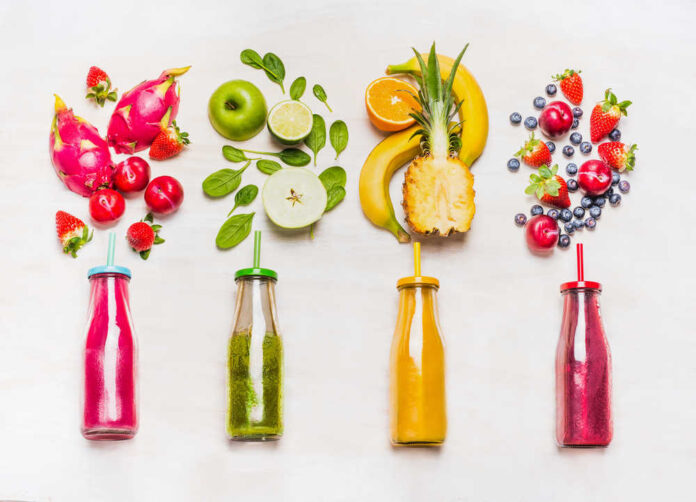
When it comes to maintaining a healthy lifestyle, there are certain habits that many of us adopt with the belief that they are beneficial for our overall well-being.
However, some of these habits are not as healthy as they seem and can even, in some cases, be detrimental to our health.
Let’s take a closer look at 5 common “healthy” habits that may not be as beneficial as you think.
Restrictive Dieting
Restrictive dieting —cutting out entire food groups or drastically reducing calorie intake—has become a popular weight loss strategy. However, this approach to weight loss can be harmful to your physical and mental health.
Restrictive dieting can lead to nutrient deficiencies, disordered eating patterns, and an unhealthy relationship with food. And on top of all that, it is also generally not a sustainable solution for losing weight or eating healthy.
Instead of restricting your diet, clinical research suggests it is much more helpful to focus on filling yourself up with nutrient-dense foods (such as fruits, vegetables, beans, nuts, seeds, and whole grains). These foods will help ensure you get all the nutrition you need to be healthy, without consuming excess calories or unhealthy fats. They can also help regulate your hunger signals, making it easier to avoid snacking and overeating.
‘Detox’ Smoothies
Detox smoothies, or smoothies that are marketed as a way to “cleanse” your body of toxins, have become a popular trend in health and wellness. However, your body already has a natural detox system in place: your liver, kidneys, and colon.
Drinking detox smoothies won’t actually “cleanse” your body of toxins. Some detox smoothies may even be harmful to your health, especially if they are replacing whole foods.
Instead of relying on detox smoothies, focus on maintaining a healthy diet, drinking enough water, and getting regular exercise to support your body’s natural detoxification process. Additionally, if you are looking for a refreshing and healthy drink, try water infused with fruits and herbs like cucumber, lemon, mint, or green tea.
Vitamins and Supplements
Vitamins and supplements are often seen as a magical, health-boosting solution to many health issues. Yet research has shown that for the majority of people, taking vitamins and supplements will provide little or no tangible benefit.
In cases of malnourishment or deficiencies, vitamin supplements can be a useful medical intervention for restoring nutrition to healthy levels.
But there is no strong evidence that taking excess amounts beyond what your body needs will provide added boosts to your immune system or overall health. In fact, many vitamins and supplements can be dangerous if you consume too much.
Furthermore, they are not intended to replace a balanced diet consisting of whole foods. Eating a balanced diet that includes a variety of fruits, vegetables, whole grains, and lean proteins will typically provide your body with all the necessary vitamins and minerals it needs.
Before taking any type of vitamin or supplement, it is essential to discuss your decision with a healthcare professional to ensure that you are making the right choice for your particular needs.
Small Amounts of Alcohol
There is a common misconception that consuming small amounts of alcohol may have beneficial health effects. This myth originated from the misinterpretation of research data which initially pointed to a negative correlation between consuming alcohol in moderation and cardiovascular disease. This data was spun by popular media to suggest that moderate drinking could be beneficial for one’s heart health.
However, more recent studies have found that drinking any amount of alcohol is associated with an increased risk of several health issues.
While small amounts of alcohol are not nearly as harmful as heavy drinking, recent research has shown that even as few as 3 drinks per week can raise your risk for life-threatening health issues.
If you are going to drink, make sure you do so in accordance with recommended guidelines: not more than 2 in a single day, and not more than 10 per week. Don’t rely on alcohol as a coping mechanism or as a way to improve your health. You’ll probably be fine enjoying a little bit on a special occasion, but avoid making it a regular habit.
Tanning Your Skin
It can be tempting to hit the beach or go to a tanning booth to get your skin bronzed and glowing. Many people believe that it will make them look more healthy or attractive.
However, tanning is actually a sign that your skin is damaged and trying to protect itself from further harm. UV radiation from the sun or tanning beds can cause premature aging and wrinkles, and it significantly raises your risk for developing life-threatening skin cancer.
Clinical research has demonstrated that each time you get in a tanning bed substantially increases your risk of malignant melanoma, especially for women aged 45 years or younger.
To keep your skin looking healthy, wear a broad-spectrum sunscreen with SPF 30 or higher whenever you are outdoors. This will help protect your skin from the sun’s damaging rays. Even if you don’t get burned, you can still damage your skin from prolonged exposure.
Additionally, you can protect your skin by keeping it clean, moisturized, and wearing protective clothing whenever possible.






















